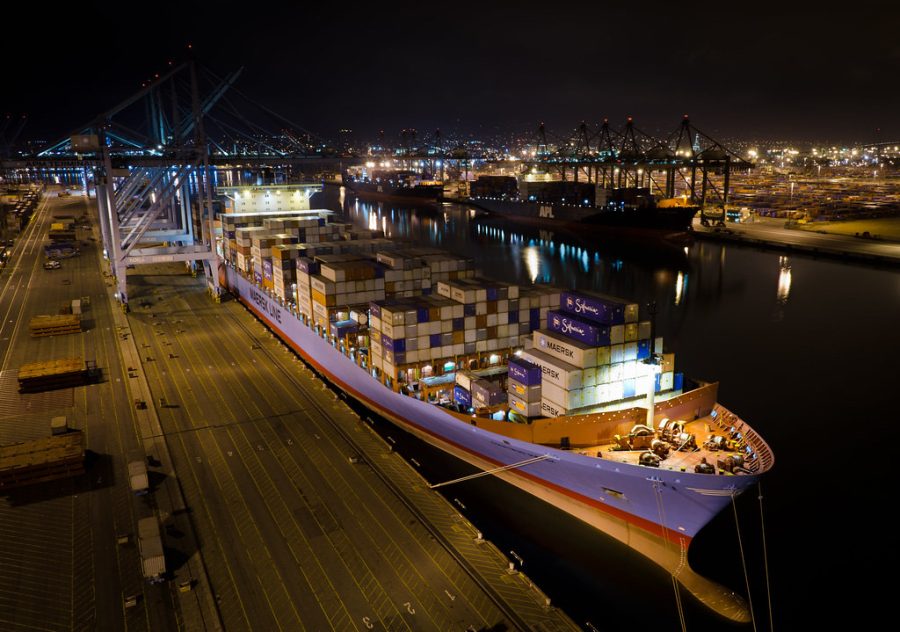Consumer demand increase during COVID-19 causes employee shortage in the U.S.
The supply-chain crisis is the result of COVID-19 disruptions paired with a boom in demand. Shortages of workers, equipment, and space have only made the issue worse.
The U.S. is currently struggling to meet demand as cargo ships are backlogged at U.S. ports, and with the expected holiday season spike in sales, it brews the perfect storm for empty shelves and disappointment with the administration.
Conservatives deploy their campaign strategy for the next presidential term by blaming President Joe Biden for the supply chain mess, citing him as the Grinch trying to ruin Christmas; more specifically the holiday shopping season. Although, the supply chain mess can’t solely be blamed on Biden.
The supply chain, which consists of product and raw material distribution, was disrupted by COVID-19 creating shortages and delays. But the pandemic isn’t the only factor fueling this crisis.
In the beginning, the supply chain was disrupted as factories globally shut down due to the propagation of COVID-19. As worker shortages disrupted production and delivery, it affected the next section of the supply chain, all while consumer demand increased. This, along with inflation –– in part caused by lots of money in circulation as the administration tried to save the economy –– has temporarily created higher prices once products finally landed on store shelves.
But companies solely blaming “worker shortage” isn’t entirely true when they’re at fault for creating it, often resulting in strikes across the country. Kellogg’s Cereal and Nabisco have experienced these strikes, although Nabisco’s monthlong strike ended last month.
Despite these companies’ profits increasing due to increased demand, employees weren’t given increased compensation for their extensive labor. Such high demand falling on a limited pool of workers resulted in overworked employees receiving the same wage, despite the fact that their health was at risk as COVID-19 lingered.
In the case of the John Deere strike, a cause for their strike, according to Bloomberg, was mandatory overtime which extended employees’ shifts up to 12 hours.
All of these factors affecting the supply chain have resulted in Biden getting blamed for inflation, but I think the money that is circling is relief bills that will help the country in the future, so the country must address the other aspect that is driving inflation –– the bottlenecks on imports.
“The American consumer’s buying strength is so strong and epic that we can’t absorb all this cargo into the domestic supply chain,” said Gene Seroka, director of the Port of Los Angeles last month.
Due to a record number of imports and not enough workers, cargo ships were just waiting to be unloaded. Shipments being stuck at port slowed down deliveries and increased the prices of goods.
Biden announced on Oct. 13 that the Los Angeles port would change their hours to 24/7, increasing operation time. This would address product shortages in the U.S. while speeding up shipping nationwide, as the Los Angeles port is responsible for handling 40% of U.S. imports.
Biden also discussed his meeting with top retailers where he urged the “private sector to help ease the supply chain blockages that are threatening to disrupt the U.S. holiday season.” Biden added, “If federal support is needed, I’ll direct all appropriate action, and if the private sector doesn’t step up, we’re going to call them out and ask them to act.”
Hopefully, the private sector and the current administration will discuss new ways to compensate current workers and prospective hires, because without employees you can’t run a business. Limited amounts of goods and extensive prolonged delays will only raise prices, cause inflation and create consumer dissatisfaction, not only with the companies they purchase from but with the current administration, as people view how this supply chain crisis negatively impacts the economy.







